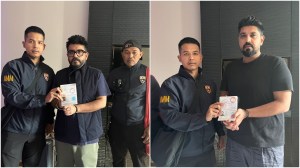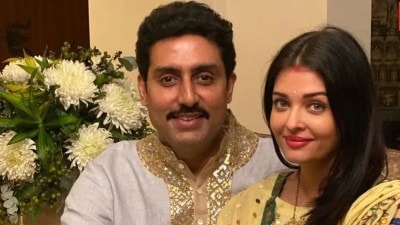Stay updated with the latest - Click here to follow us on Instagram
Ministry,govt officials meet on superbug,say water in Delhi is safe
The Health Ministry convened its first emergency meeting at the National Centre for Disease Control on Tuesday over the alleged presence of the superbug in Delhis water supply system.
The Health Ministry convened its first emergency meeting at the National Centre for Disease Control (NCDC) on Tuesday over the alleged presence of the superbug in Delhis water supply system.
The meeting,which comes less than a week after The Lancet journal reported the finding of the NDM-1 gene in the Capitals water supply system,was chaired by acting director of NCDC Dr R L Ichhbujani and attended by officials from the Delhi Health department,municipalities MCD and NDMC and water utility Delhi Jal Board.
The government is said to have rubbished the Lancet report,claiming it to be an old study,which has no bearing on the present water supply. Efforts to improve water surveillance and purification mechanisms were discussed. There is absolutely no change on the reservations that were expressed by the Ministry about the findings of the report, a senior NCDC official said.
DJBs Chief Executive Ramesh Negi said: The meeting wanted to know the water purification mechanism followed by the Jal Board (which cleans normal bacteria only). They were satisfied with our response.
Dr Ichhbujani,when contacted,said he was not authorised to speak to the media. Sources,however,said no decision to initiate a new study to confirm antibiotic resistance in Delhis water has been taken by the Health Ministry so far.
It is clearly a sensitive matter,and we are treading with caution. No conclusions about a confirmatory study of The Lancet report were discussed on Tuesday, the official said.
Officials,meanwhile,said the Ministry will stick by the views already expressed by Director General of Health Services and Director General of the Indian Council of Medical Research. We still maintain that the findings appear to target India unnecessarily. The manner in which the water samples for the study were taken by a TV reporter,without consulting the authorities,is also incorrect, said an official. Experts have,however,suggested that municipal bodies could conduct a second stage of chlorination for water to enhance the existing surveillance and purification mechanism.
The article published online in The Lancet Journal of Infectious Diseases on April 7 reported that the New Delhi metallo-beta-lactamase 1 (NDM-1) gene was present in two of the 50 drinking water samples,and in 51 of the 171 water seepage samples collected from Central Delhi. The researchers Dr Mark Toleman and Dr Timothy Walsh from Cardiff University had earlier,too,reported the presence of the gene that reportedly made bacteria resistant to antibiotics.







